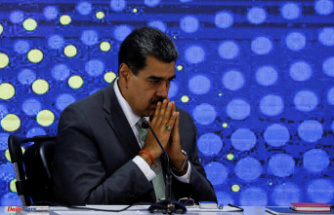A simple investment for amazing gains, all promised by the influencer you are used to following and in whom you trust. The picture is perfect: in the world of finance, it is therefore suspect. While the Paris public prosecutor's office estimates the annual financial damage caused by financial scams at 500 million euros, the Financial Markets Authority, the AMF, and the Professional Advertising Regulatory Authority, the ARPP, have announced on July 21 the signing of an amendment to their partnership agreement, which has existed since 2011, in order to better regulate advertising on financial products. It is a question of studying the responsibility of influencers who often organize, in the field of investment, non-transparent advertising in exchange for income.
The joint idea of the two organizations is to create a "certification of responsible influence" specific to the field of investment. In 2021, the ARPP has already set up a certificate for influencers so that they have a better understanding of the legal and ethical framework of the brands for which they work, but this did not specifically cover the financial sector. The AMF is therefore joining the ARPP in order to provide its expertise in the field of financial products, and in particular crypto-assets. Thus, the two organizations will create, by 2023, training for influencers to adopt good practices when communicating about investment companies. Those obtaining the certification will then be monitored in their activity and will have to retake tests in the future to keep this label. It is above all a question for the two Authorities of tackling the world of cryptocurrency, which has been very fashionable since the Covid-19 pandemic, and whose regulation is proving complicated.
A few influencers have already been singled out by financial authorities. Let us cite the case of Nabila Benattia-Vergara, whom the Directorate General for Competition, Consumer Affairs and Fraud Prevention sentenced last summer to a fine of 20,000 euros for "misleading commercial practices". This former reality TV star had, in January 2018, promoted a site specializing in the sale and purchase of Bitcoin, without specifying that she was paid for it.
"Failure to indicate the advertising nature of its publication (by a logo or an oral or written mention for example) constitutes a misleading commercial practice against its subscribers who may mistakenly believe that the promotion of the influencer results of a disinterested positive personal experience", explained the DGCCRF, in order to justify its decision. With the creation of this label, the AMF and the ARPP are therefore betting that amateur investors will be more attracted by a guarantee of seriousness than by a promise of a dream.












